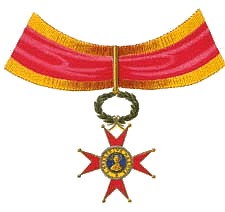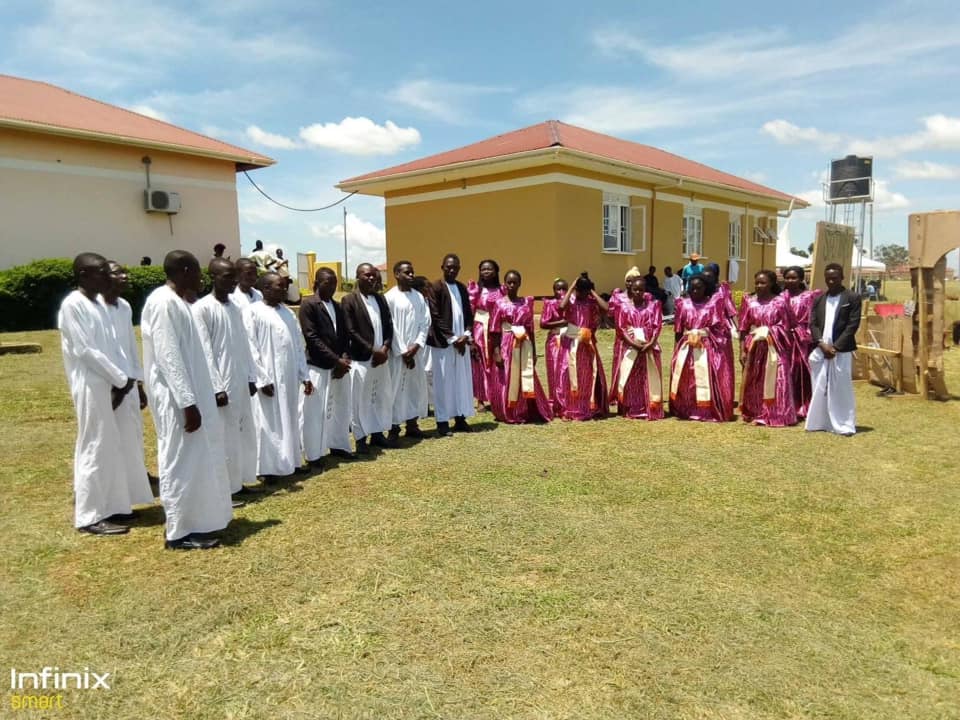|
Kalema Of Buganda
Rashid Kalema Muguluma was Kabaka of the Kingdom of Buganda, from 21 October 1888 until 5 October 1889. He was the 33rd Kabaka of Buganda. Claim to the throne Kalema Muguluma was the son of Kabaka Mukaabya Walugembe Muteesa I Kayiira, Kabaka of Buganda, who reigned between 1856 and 1884. His mother was Ndibuwakanyi, of the Mamba clan. He was declared Kabaka by the Muslim forces that deposed his elder brother Kabaka Kiweewa Mutebi Nnyonyintono on 21 October 1888. He maintained his capital at Mengo Hill. Married life He is recorded to have married the following wives: # Nabikukuzi, daughter of Jjumba, of the Nkima clan # Sofia Kabakalongoosa, daughter of Kinyolo, of the Nkima clan # Nakibuuka, daughter of Mugema, of the Nkima clan # Zefiria Nnampa Nakibuuka, daughter of Bakkabulindi of the Ngeye clan # Nabibooge, daughter of Kibaya, of the Nsenene clan # Veneneka Nabiwemba, daughter of Wakooli, a Musoga, of the Ngabi clan # Njera Saabaddu, daughter of Gabunga, of the Mamba cl ... [...More Info...] [...Related Items...] OR: [Wikipedia] [Google] [Baidu] |
Kabaka Of Buganda
the kabaka Palace in kireka Kabaka is the title of the king of the Kingdom of Buganda.Stanley, H.M., 1899, Through the Dark Continent, London: G. Newnes, According to the traditions of the Baganda they are ruled by two kings, one spiritual and the other secular. The spiritual, or supernatural, king is represented by the Royal Drums, regalia called ''Mujaguzo'' and, as they always exist, the Buganda at any time will always have a king. ''Mujaguzo'', like any other king, has his own palace, officials, servants and palace guards. The material, human prince has to perform special cultural rites on the Royal Drums before he can be declared king of Buganda. Upon the birth of a royal prince or princess, the Royal Drums are sounded by drummers specially selected from a specified clan as a means of informing the subjects of the kingdom of the birth of a new member of the royal family. The same Royal Drums are sounded upon the death of a reigning king to officially announce the death of ... [...More Info...] [...Related Items...] OR: [Wikipedia] [Google] [Baidu] |
GCSG
The Pontifical Equestrian Order of St. Gregory the Great ( la, Ordo Sancti Gregorii Magni; it, Ordine di San Gregorio Magno) was established on 1 September 1831, by Pope Gregory XVI, seven months after his election as Pope. The order is one of the five orders of knighthood of the Holy See. The honor is bestowed upon Catholic men and women (and certain notable non-Catholics) in recognition of their personal service to the Holy See and to the Catholic Church, through their unusual labors, their support of the Holy See, and the examples they set in their communities and their countries. History and appointment The inaugural brief states, in part, that "gentlemen of proven loyalty to the Holy See who, by reason of their nobility of birth and the renown of their deeds or the degree of their munificence, are deemed worthy to be honored by a public expression of esteem on the part of the Holy See". The end of the brief states that they must progressively maintain, by continued merit ... [...More Info...] [...Related Items...] OR: [Wikipedia] [Google] [Baidu] |
Protestantism
Protestantism is a branch of Christianity that follows the theological tenets of the Protestant Reformation, a movement that began seeking to reform the Catholic Church from within in the 16th century against what its followers perceived to be growing errors, abuses, and discrepancies within it. Protestantism emphasizes the Christian believer's justification by God in faith alone (') rather than by a combination of faith with good works as in Catholicism; the teaching that salvation comes by divine grace or "unmerited favor" only ('); the priesthood of all faithful believers in the Church; and the ''sola scriptura'' ("scripture alone") that posits the Bible as the sole infallible source of authority for Christian faith and practice. Most Protestants, with the exception of Anglo-Papalism, reject the Catholic doctrine of papal supremacy, but disagree among themselves regarding the number of sacraments, the real presence of Christ in the Eucharist, and matters of ecclesiast ... [...More Info...] [...Related Items...] OR: [Wikipedia] [Google] [Baidu] |
Catholicism
The Catholic Church, also known as the Roman Catholic Church, is the largest Christian church, with 1.3 billion baptized Catholics worldwide . It is among the world's oldest and largest international institutions, and has played a prominent role in the history and development of Western civilization.O'Collins, p. v (preface). The church consists of 24 ''sui iuris'' churches, including the Latin Church and 23 Eastern Catholic Churches, which comprise almost 3,500 dioceses and eparchies located around the world. The pope, who is the bishop of Rome, is the chief pastor of the church. The bishopric of Rome, known as the Holy See, is the central governing authority of the church. The administrative body of the Holy See, the Roman Curia, has its principal offices in Vatican City, a small enclave of the Italian city of Rome, of which the pope is head of state. The core beliefs of Catholicism are found in the Nicene Creed. The Catholic Church teaches that it is th ... [...More Info...] [...Related Items...] OR: [Wikipedia] [Google] [Baidu] |
Baganda
The Ganda people, or Baganda (endonym: ''Baganda''; singular ''Muganda''), are a Bantu ethnic group native to Buganda, a subnational kingdom within Uganda. Traditionally composed of 52 clans (although since a 1993 survey, only 46 are officially recognised), the Baganda are the largest people of the bantu ethnic group in Uganda, comprising 16.5 percent of the population at the time of the 2014 census. Sometimes described as "The King's Men" because of the importance of the king, or Kabaka, in their society, the Ganda number an estimated 5.56 million in Uganda. In addition, there is a significant diaspora abroad, with organised communities in Canada, South Africa, Sweden, the United Kingdom, and the United States. Traditionally, they speak Luganda. History Early history The early history of the Ganda is unclear, with various conflicting traditions as to their origins. One tradition holds that they are descendants of the legendary figure of Kintu, the first human accordi ... [...More Info...] [...Related Items...] OR: [Wikipedia] [Google] [Baidu] |
Semei Lwakirenzi Kakungulu , city in Kazakhstan
{{disambig ...
Semei may be *Σεμεϊ, the LXX spelling of Shimei *Semei Kakungulu, Ugandan religious leader *Treaty of Semei *Semey Semey ( kk, Семей, Semei, سەمەي; cyrl, Семей ), until 2007 known as Semipalatinsk (russian: Семипала́тинск) and in 1917–1920 as Alash-kala ( kk, Алаш-қала, ''Alaş-qala''), is a city in eastern Kazakhst ... [...More Info...] [...Related Items...] OR: [Wikipedia] [Google] [Baidu] |
Mbale
Mbale is a city in the Eastern Region of Uganda. It is the main municipal, administrative, and commercial center of Mbale District and the surrounding sub-region. Location Mbale is approximately , by road, northeast of Kampala, Uganda's capital and oldest city, on an all weather tarmac highway. The city lies at an average elevation of above sea level. The coordinates of the city are 1°04'50.0"N, 34°10'30.0"E (Latitude:1.080556; Longitude:34.175000). The city also lies on the railway from Tororo to Pakwach. Mount Elgon, one of the highest peaks in East Africa, is approximately , north-east of Mbale, by road. Population According to the 2002 national census, the population of Mbale was about 71,130. In 2010, the Uganda Bureau of Statistics (UBOS) estimated the population at 81,900. In 2011, UBOS estimated the mid-year population at 91,800. In 2014, the national population census put the population at 96,189. Twinning Mbale was formally linked with the town of , Wales thr ... [...More Info...] [...Related Items...] OR: [Wikipedia] [Google] [Baidu] |
Kampala
Kampala (, ) is the capital and largest city of Uganda. The city proper has a population of 1,680,000 and is divided into the five political divisions of Kampala Central Division, Kawempe Division, Makindye Division, Nakawa Division, and Rubaga Division. Kampala's metropolitan area consists of the city proper and the neighboring Wakiso District, Mukono District, Mpigi District, Buikwe District and Luweero District. It has a rapidly growing population that is estimated at 6,709,900 people in 2019 by the Uganda Bureau of Statistics in an area of . In 2015, this metropolitan area generated an estimated nominal GDP of $13.80221 billion (constant US dollars of 2011) according to Xuantong Wang et al., which was more than half of Uganda's GDP for that year, indicating the importance of Kampala to Uganda's economy. Kampala is reported to be among the fastest-growing cities in Africa, with an annual population growth rate of 4.03 percent, by City Mayors. Mercer (a New York- ... [...More Info...] [...Related Items...] OR: [Wikipedia] [Google] [Baidu] |
Papal
The pope ( la, papa, from el, πάππας, translit=pappas, 'father'), also known as supreme pontiff ( or ), Roman pontiff () or sovereign pontiff, is the bishop of Rome (or historically the patriarch of Rome), head of the worldwide Catholic Church, and has also served as the head of state or sovereign of the Papal States and later the Vatican City State since the eighth century. From a Catholic viewpoint, the primacy of the bishop of Rome is largely derived from his role as the apostolic successor to Saint Peter, to whom primacy was conferred by Jesus, who gave Peter the Keys of Heaven and the powers of "binding and loosing", naming him as the "rock" upon which the Church would be built. The current pope is Francis, who was elected on 13 March 2013. While his office is called the papacy, the jurisdiction of the episcopal see is called the Holy See. It is the Holy See that is the sovereign entity by international law headquartered in the distinctively independent Vatican ... [...More Info...] [...Related Items...] OR: [Wikipedia] [Google] [Baidu] |
King George VI Coronation Medal
The King George VI Coronation Medal was a commemorative medal, instituted to celebrate the coronation of King George VI and Queen Elizabeth. Issue This medal was awarded as a personal souvenir of King George VI's coronation. It was awarded to the Royal Family and selected officers of state, officials and servants of the Royal Household, ministers, government officials, mayors, public servants, local government officials, and members of the navy, army, air force and police in Britain, her colonies and Dominions. For Coronation and Jubilee medals, the practice up until 1977 was that United Kingdom authorities decided on a total number to be produced, then allocated a proportion to each of the Commonwealth countries and Crown dependencies and possessions. The award of the medals was then at the discretion of the local government authority, who were free to decide who would be awarded a medal and why. A total of 90,279 medals were awarded, including: *6,887 to Australians *10,089 ... [...More Info...] [...Related Items...] OR: [Wikipedia] [Google] [Baidu] |
Daudi Chwa II Of Buganda
Daudi Chewa II was Kabaka of the Kingdom of Buganda from 1897 until 1939. He was the 34th Kabaka of Buganda has a surviving daughter, Princess Addah Balilara lives in Bujjuko, Kampala Life He was born on 8 August 1896, at Mengo. He was the fifth son of Kabaka Danieri Basammula-Ekkere Mwanga II Mukasa, Kabaka of Buganda, between 1884 and 1888 and between 1889 and 1897. His mother was Abakyala Evalini Kulabako, of the Ngabi Clan, the fourth of his father's sixteen wives. He ascended to the throne in August 1897 following the deposition of his father by British Forces. At the time of his coronation, he was only one year old. He maintained his capital at Mengo Hill. He was educated at Kings College Budo. which was founded in 1906 alongside Daudi, by the British Commissioner and commander in chief of the then Uganda protectorate - George Wilson CB On 8 August 1914, he received an honorary commission as a lieutenant in the British Army, and was appointed an honorary captain on ... [...More Info...] [...Related Items...] OR: [Wikipedia] [Google] [Baidu] |



.jpg)


